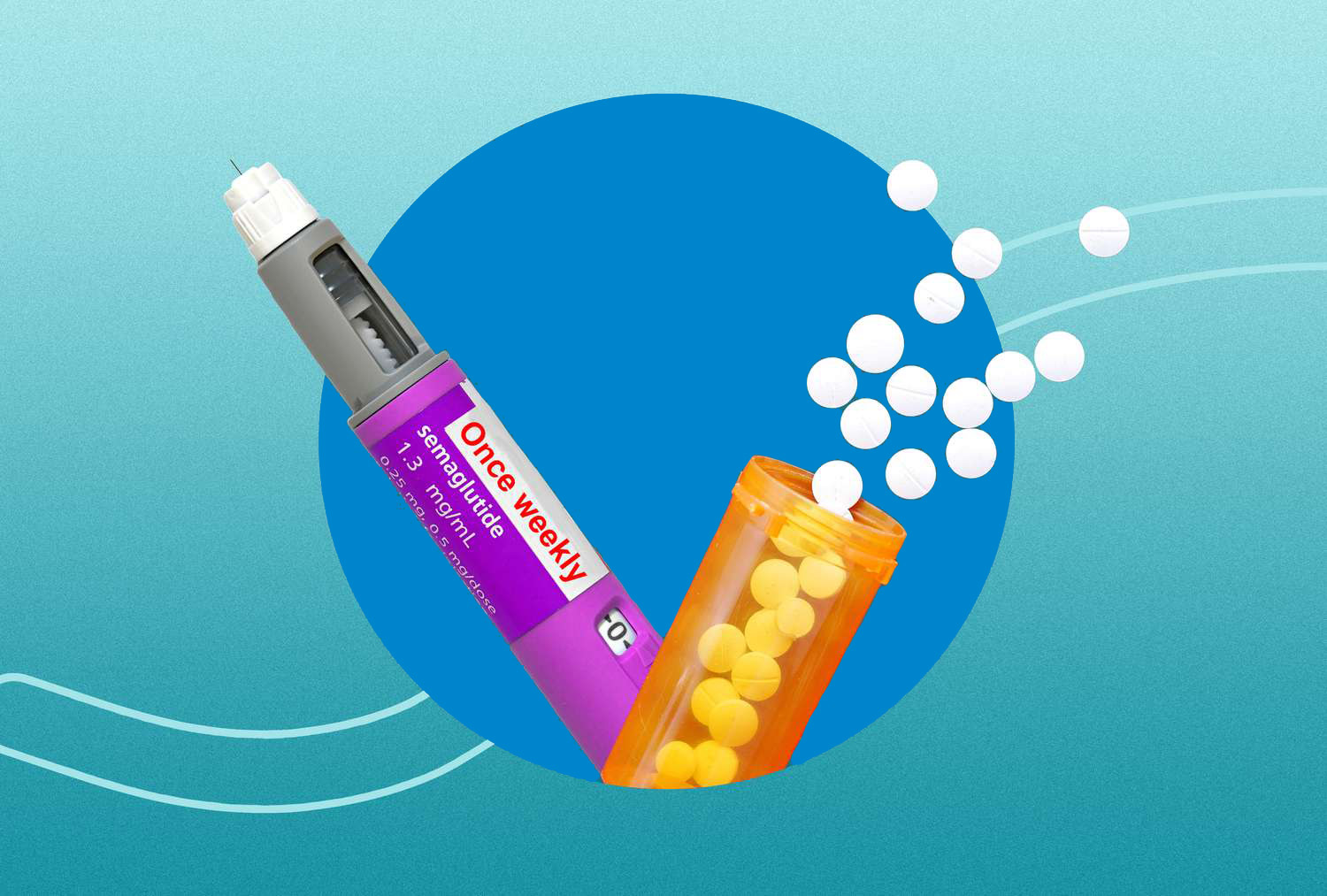Medication for Weight Loss: A Comprehensive Guide
Obesity and excess weight are global health challenges, affecting millions of individuals and leading to a host of related health complications, including diabetes, heart disease, and joint issues. While diet and exercise remain the cornerstones of weight management, medication for weight loss is increasingly becoming a viable option for those who struggle to achieve results through lifestyle changes alone.
What Are Medications for weight loss?
Medical weight loss medications, also known as anti-obesity drugs, are pharmaceutical agents designed to help individuals lose weight by targeting specific physiological pathways. These medications work through various mechanisms, including appetite suppression, fat absorption inhibition, and enhancing the feeling of fullness.
GLP-1 Receptor Agonists: A Breakthrough in Weight Loss
One of the most promising categories of weight loss medications is GLP-1 receptor agonists. These drugs, originally developed for managing type 2 diabetes, have shown significant efficacy in promoting weight loss. GLP-1 (glucagon-like peptide-1) is a hormone that regulates appetite and blood sugar levels.
How Do GLP-1 Medications Work?
GLP-1 receptor agonists mimic the action of the natural GLP-1 hormone, leading to:
- Appetite Suppression: By acting on the brain's hunger centers, these medications reduce food cravings and promote a feeling of fullness after eating.
- Slowed Gastric Emptying: GLP-1 drugs delay the emptying of the stomach, which helps control hunger and reduce calorie intake.
- Improved Blood Sugar Control: These medications enhance insulin secretion and decrease glucose production, indirectly aiding weight loss.
Commonly Prescribed GLP-1 Medications
- Semaglutide (Wegovy, Ozempic): Administered as a weekly injection, semaglutide has demonstrated significant weight loss results in clinical trials. It is also effective in managing blood sugar levels.
- Liraglutide (Saxenda, Victoza): Another injectable GLP-1 agonist, liraglutide is taken daily and has shown benefits in reducing body weight and improving metabolic health.
- Dulaglutide (Trulicity): Although primarily approved for diabetes, dulaglutide is being studied for its potential in weight management.
Benefits of GLP-1 Medications
- Effective Weight Loss: Many individuals experience substantial weight reduction, especially when combined with lifestyle changes.
- Improved Metabolic Health: These medications can lower blood sugar, reduce cholesterol levels, and improve overall cardiovascular health.
- Convenient Administration: Most GLP-1 drugs are administered via easy-to-use injections, with weekly dosing options available.
Potential Side Effects and Risks
While GLP-1 medications are generally well-tolerated, some individuals may experience side effects such as:
- Nausea and vomiting
- Diarrhea or constipation
- Fatigue or dizziness
- Rare risks of pancreatitis or gallbladder issues
Are GLP-1 Medications Right for You?
GLP-1 receptor agonists are typically recommended for individuals with:
- A BMI of 30 or higher.
- A BMI of 27 or higher with at least one obesity-related health condition, such as diabetes or hypertension.
These medications are most effective when combined with a comprehensive weight loss plan that includes dietary changes, exercise, and behavioral therapy.
The Role of Healthcare Providers
A healthcare provider will assess your medical history, current health status, and weight loss goals to determine if GLP-1 medications are appropriate for you. Regular follow-ups are essential to monitor progress, manage side effects, and adjust the treatment plan as needed.
Conclusion
GLP-1 receptor agonists represent a groundbreaking development in the field of medical weight loss and medication for weight loss. By addressing both appetite regulation and metabolic health, these medications provide a powerful tool for individuals struggling with obesity. If you’re considering GLP-1 medications as part of your weight loss journey, consult your healthcare provider to explore whether this option is right for you. Combined with lifestyle changes, these medications can help you achieve sustainable weight loss and improved overall health. Contact us today and let's see if you're eligible for GPL-1 medications or other medication for weight loss to get you feeling like a new you!
Testosterone Replacement Therapy in Wilmington
Testosterone Replacement in Wilmington and beyond has become increasingly popular and has emerged as a transformative treatment for individuals experiencing symptoms of low testosterone, or hypogonadism.
Testosterone, a vital hormone in the body, plays a crucial role in maintaining physical health, mental well-being, and overall quality of life. As levels naturally decline with age or due to medical conditions, TRT offers a pathway to restore balance and improve overall health.
Understanding Testosterone and Its Role
Testosterone is primarily known as the male sex hormone, but it is also present in smaller amounts in females. It influences a wide range of bodily functions, including:
- Muscle mass and strength
- Bone density
- Mood and cognitive function
- Energy levels
- Sexual health and libido
When testosterone levels drop below normal, individuals may experience fatigue, depression, reduced muscle mass, weight gain, and diminished sexual performance. TRT addresses these issues by restoring hormone levels to a healthy range for both men and women who may be suffering from some of the listed "Low T" side effects.
Key Benefits of Testosterone Replacement Therapy
- Increased Muscle Mass and Strength TRT enhances protein synthesis, promoting muscle growth and improving strength. This benefit is particularly important for aging individuals who may struggle with muscle loss (sarcopenia).
- Improved Energy Levels Many individuals with low testosterone report chronic fatigue. TRT can restore energy and vitality, enabling individuals to lead more active lives.
- Enhanced Mood and Mental Health Low testosterone is often linked to depression, irritability, and difficulty concentrating. TRT can stabilize mood and improve cognitive function, leading to better mental clarity and emotional well-being.
- Better Bone Health Testosterone plays a critical role in maintaining bone density. By increasing bone mineral density, TRT reduces the risk of osteoporosis and fractures.
- Boosted Libido and Sexual Performance Low testosterone levels often lead to reduced libido and erectile dysfunction. TRT can reignite sexual desire and improve performance, enhancing intimate relationships.
- Improved Cardiovascular Health Emerging research suggests that TRT may improve heart health by reducing fat mass, increasing lean body mass, and improving cholesterol profiles. While more studies are needed, early evidence points to potential cardiovascular benefits.
Who Can Benefit from Testosterone Replacement in Wilmington?
TRT is typically recommended for individuals with clinically low testosterone levels and symptoms of hypogonadism. Common candidates include:
- Men over 30 experiencing age-related testosterone decline.
- Individuals with medical conditions affecting testosterone production, such as Klinefelter syndrome or pituitary disorders.
- Women with specific health conditions leading to low testosterone.
Methods of Administration
TRT can be delivered through various methods, depending on individual preferences and medical advice:
- Injections: Administered intramuscularly, providing long-lasting effects.
- Transdermal Patches or Gels: Applied daily to the skin for consistent absorption.
- Pellets: Implanted under the skin for slow and steady release over months.
- Oral Medications: A less common method due to potential liver side effects.
Potential Risks and Considerations
While TRT offers numerous benefits, it is essential to be aware of potential risks and side effects, including:
- Acne or oily skin
- Sleep apnea
- Increased red blood cell count, which can raise the risk of blood clots
- Prostate health concerns
Regular monitoring by a healthcare provider is crucial to ensure the therapy is safe and effective.
The Role of Healthcare Providers
Before starting TRT, a healthcare provider will conduct comprehensive evaluations, including blood tests, medical history, and symptom assessments. Ongoing follow-ups are essential to monitor testosterone levels, adjust dosages, and manage any side effects.


